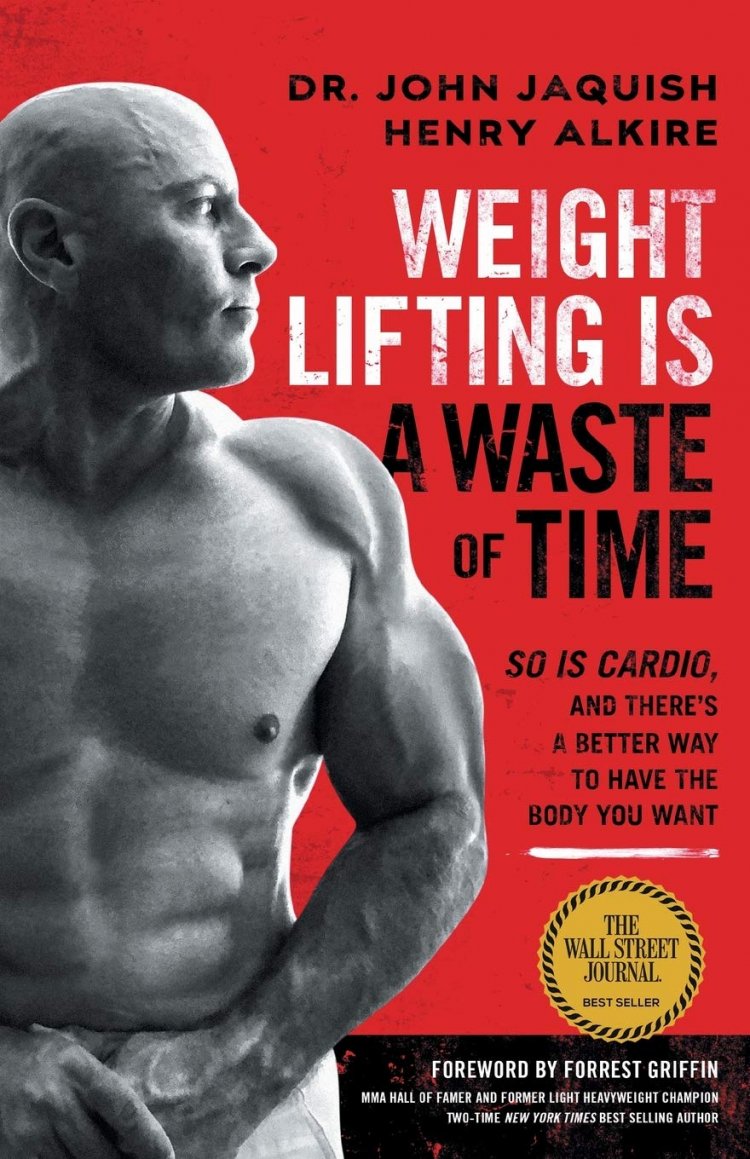After Holiday Cardio Will Keep You Fatter Longer Reveals Author Dr. John Jaquish

SAN FRANCISCO, CA, UNITED STATES: The holidays are over and many with New Years’ weight-loss resolutions have kicked their workout sessions into high gear by adding cardiovascular exercises like jogging, swimming, and treadmill. In his WSJ Bestselling book, "Weightlifting is a Waste of Time - So is Cardio," scientist, inventor, and author Dr. John Jaquish reveals why cardio exercise for weight loss is a bad idea and how it will actually keep you fatter longer.
“Cardio, also called endurance, has long been the go-to type of exercise for weight loss. People think they’re going to burn fat from a vigorous daily cardio workout, but there is uncontested research that shows just the opposite,” says Dr. Jaquish.
In his book, Dr. Jaquish details why cardiovascular exercise is a driver for muscle loss and body fat maintenance. “Think of your central nervous system as an engineering team that is always trying to optimize you for the environment you’re in by triggering your endocrine system (hormones) to make adjustments based on environmental sensory perception. This means that if you regularly run great distances, your nervous system is going to make adjustments to your hormone levels to help you get better at distance running. The question then becomes ‘what are the changes needed to optimize your physiology for running long distances?’ ”
Here’s how an engineering team designing a car to go great distances would make design decisions - and how your endocrine system would alter your body’s physiology to achieve the same objective:
• Lighten the chassis. “Lower weight permits traveling greater distances. From a human physiology perspective, lightening the chassis means losing bone density. This is consistent with research which indicates that cardio/endurance athletes typically have low bone density,” says Dr. Jaquish.
• Shrink the engine. “There is a reason economy cars don’t have V12 engines: a smaller engine burns less fuel. In human physiology, muscle is the “engine” that drives the body’s speed and ability to move. In cardio/endurance athletes cortisol levels increase, reducing muscle mass. It’s much easier to go further on a given amount of caloric energy when you have less muscle tissue (to contract as you move).
• Add fuel storage. To go long distances you need a big fuel tank, and the fuel tank of the human body is body fat. This is another reason why the body increases the production of cortisol, as higher cortisol levels are associated with more and longer-lasting body fat storage.
“Your nervous system makes the adjustments needed to optimize your body for the environments you put yourself in. That’s why cardiovascular/endurance exercise can make you weaker, with less muscle mass and more body fat. While the scientific evidence has existed for a very long time, this information unfortunately still has not made it into the fitness industry’s recommendations,” says Dr. Jaquish.
Variable Resistance -- The Key to Health, Strength and Fat Loss
Dr. Jaquish says the major hormones responsible for weight loss and muscle gain – growth hormone and testosterone – are optimally stimulated through strength training: the greater the resistance, the greater the hormone release. To maximize hormone production, muscle growth, and fat loss available through strength training, Dr. Jaquish has designed the X3 training system.
“The X3 system uses variable resistance to burn fat, improve cardio, and safely build muscle tissue faster and more efficiently than endurance workouts or free weights,” says Dr. Jaquish.















































